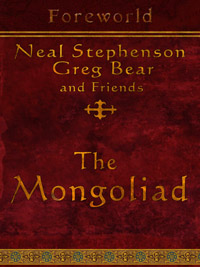People often ask me how I first got published. For years, I hated answering that question. Not because I disliked the way I entered the business, but because it was so unusual at the time, that others would be very unlikely to emulate it.
That’s not the case anymore.
 My first book started its life as a serialized novel that I published online. I had conceived of my own ezine at the time, where we published reviews of art and entertainment from pop culture. We also posted short stories and poems. And I had this crazy notion to create and write a really big story that I would serialize on this same ezine. I called it Prodigy. (I know, it’s not the most original title ever.)
My first book started its life as a serialized novel that I published online. I had conceived of my own ezine at the time, where we published reviews of art and entertainment from pop culture. We also posted short stories and poems. And I had this crazy notion to create and write a really big story that I would serialize on this same ezine. I called it Prodigy. (I know, it’s not the most original title ever.)
I outlined the whole thing in advance, so I’d know where it was all going, and I’d know what each chapter needed to be about. Then I wrote each chapter as I went, and posted a new one every other Friday. There were eighteen chapters total, and each one consisted of approximately seven thousand words. I posted the entire chapter on one HTML page, and I also made multi-page PDF documents that readers could download and print out, if they preferred to read it that way.
Imagine my thrill when my little story became the ezine’s most popular feature. I always made a point of ending on a cliffhanger, so people couldn’t wait to come back every two weeks and find out what happened next.
A publisher I was working with at the time on some contests for our ezine took notice of what I was doing with this serialized story, and asked if I’d be interested in having it published in print. What’s more, they suggested we make it the first installment of a trilogy. So shortly after the story was finished, I signed on with a three-book contract — my first. They wanted to change the title to Relentless. And the rest is history.
Now I wouldn’t consider myself a pioneer in the field. I was hardly the first to publish a serialized novel online. Heck, writers have been serializing their books in printed magazines and newspapers for probably a hundred years or more. But it wasn’t something that was happening frequently — and even less often were these Internet novelists finding themselves signed with a publisher.
That was five years ago.
A few years back, serializing stories via email mailing lists was all the rage. The thinking was that once you got someone to sign up for your mailing list (in order to receive the next chapters of your story), you’d then have them for the duration, willing to stick with you through whatever you write next — even if it’s not online but in print.
It was an interesting idea that saw real success for some. But today’s readers are savvier. They want more than just a page of text delivered to their Inbox. They want to be involved, to interact, to be part of the world you create.
 One author that understands this is Neal Stephenson. Just this week, he and a group of authors that includes novelist Greg Bear launched a new serialized novel called The Mongoliad, which they’re planning as the first of a series of books about a rich, detailed fantasy world they call Foreworld. They’re publishing a new chapter a week for an entire year, but they’re also taking the “online novel” concept to an entirely new level, with tons of extra content like artwork, video, and an online encyclopedia.
One author that understands this is Neal Stephenson. Just this week, he and a group of authors that includes novelist Greg Bear launched a new serialized novel called The Mongoliad, which they’re planning as the first of a series of books about a rich, detailed fantasy world they call Foreworld. They’re publishing a new chapter a week for an entire year, but they’re also taking the “online novel” concept to an entirely new level, with tons of extra content like artwork, video, and an online encyclopedia.
What’s more, Stephenson and Bear are very shrewdly asking fans to join in creating this content. They’re setting out to create nothing less than an entire alternate fantasy world, with its own history and culture and characters, and they’re asking fans to submit ideas for things to be added to the official “Foreworld Canon.” They’re even offering varying tiers of access — paying fans will get access to more in-depth extras, while the casual fan will merely get to read the basic story. They’re even working on iPhone and Android companion apps for your smartphone.
Once their planned year of content is finished, they’re going to make The Mongoliad available as a printed volume. They’re doing the same basic thing I did with my first book, only with far more resources and taking the concept to its next logical step, involving the fans with direct interaction. The whole thing is a really ingenious experiment by a pair of very forward-thinking writers, and I can’t wait to see how successful it is.
Stephenson is so ahead of the curve on this idea, he’s actually helped to form a new company called Subutai, which has created a product for writers called PULP. PULP is basically a software platform for creating and delivering digital novels, and it’s what’s powering the Mongoliad website. (Sadly, PULP is not yet available to others; I imagine that Subutai is waiting to gage its success with The Mongoliad.) You can read more about Subutai and PULP here.
Should you try your hand at a serialized novel? Well, you’ll need a few things to get started:
- A strong story with a concept that lends itself to being serialized, or told in regular installments.
- A website, blog, or ezine to publish your work on.
- A strategy.
It’s that last one that most writers fail at. You need a way of getting the word out and involving them in what you’re doing. If you’re someone like Neal Stephenson and Greg Bear, who have an established reader base, it won’t be a problem. Likewise, if you can convince a well-known ezine or blog to publish your serialized story, their readers are already built-in and will likely come see what your story is about.
It’s the rest of us that have to be clever, thinking up our own ways to promote our work, using social media and advertising and any other original marketing ideas we can think up.
Next week, I’ll talk about some original and intelligent 21st Century book marketing ideas that you can use.

Leave a Reply